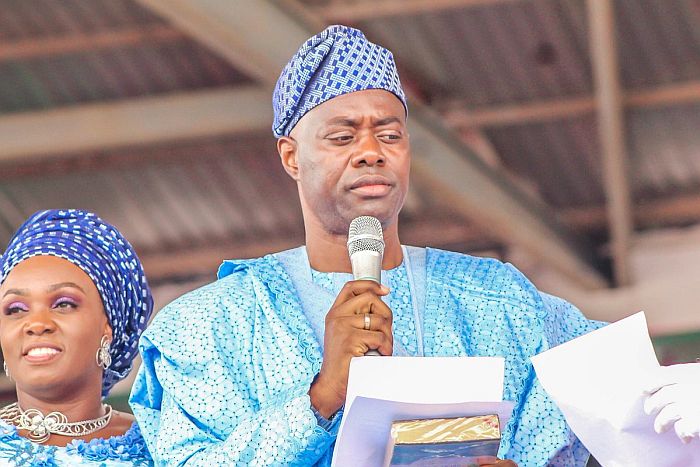Governor ‘Seyi Makinde of Oyo State, on Tuesday, kicked off the payment of the Oyo State Land Use Charge by paying bills on his private properties, charging property owners in the state to follow suit by paying their Land Use Charge.
The governor, while speaking shortly after the 11th Executive Council meeting of 2021, held at the Exco Chamber of the Governor’s Office, Secretariat, Agodi, Ibadan, maintained that the payment of the charge would help the government to generate additional revenues to develop the state.
A statement by the Chief Press Secretary to the governor, Mr. Taiwo Adisa, indicated that the Executive Council also granted approvals for the commencement of the Oyo State Residents’ Registration Programme, the forwarding of three Bills to the State House of Assembly.
The bills include the State Audit Bill, Assessment and Collection of Personal Income Tax Bill and the Oyo State College of Agriculture and Technology Bill.
The Council also approved the relocation and establishment of the College of Agriculture and Renewable Natural Resources of the Ladoke Akintola University (LAUTECH) to Iseyin, mandating the Ministry of Education and the management of LAUTECH to work with the community to ensure that land was provided for the establishment of the College.
A take-off grant was also approved for the project, the statement said.
The statement indicated that the Commissioner for Information, Culture and Tourism, Dr. Wasiu Olatubosun; Commissioner for Justice; Professor Oyelowo Oyewo; Commissioner for Education, Science and Technology, Barr. Olasunkanmi Olaleye and his Finance counterpart, Mr. Akinola Ojo, as well as the Special Assistant to the governor on Information Communication Technology, Mr. Bayo Akande, jointly addressed the media on the different items.
The state’s Commissioner for Finance, Mr. Ojo, while explaining the Land Use Charge maintained that the charge was not a new tax and that it “is to ensure that Oyo State has the revenues required to carry out all the exceptional projects to uplift our people from poverty to prosperity.”
Ojo said that the state government had, in the last one year, embarked on data capturing and enumeration of properties, adding that the charge, which would be paid annually, had been designed in such a way that the value of properties would determine the amount to be paid.
He added that the payment could be made over a period of time, with incentives for early payment and penalties for defaulting.














